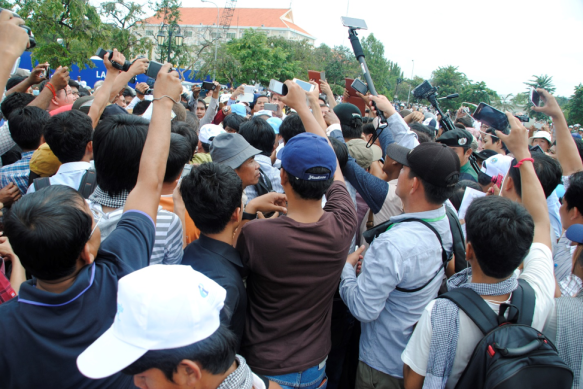
Throughout Southeast Asia, too many journalists face risks as a result of their profession, including violence, harassment, and criminal charges. This is despite the fact that states are obligated to prevent, protect against, and prosecute attacks against journalists and human rights defenders, and uphold freedom of expression. Freedom of expression is a fundamental human right which includes the right to seek, receive, and impart information and ideas of all kinds, in diverse forms. Its value is particularly high in the context of political discourse.
On World Press Freedom Day 2019, journalists and media outlets have the opportunity to celebrate their work and the multiple ways in which they contribute to a more transparent society. In democratic societies, the role of the media is crucial to ensure that reliable information reaches the public, including coverage of human rights abuses. Importantly, it is crucial that women are involved in both the content creation and creative control of media in order to ensure that gender-based violations come to light, and to provide a parity of gender perspectives and voices in the content that we read, hear and watch. However, if a landscape for independent media is not enabled and supported by states, a journalist’s work becomes perilous.
Two Pulitzer Prize-winning journalists, jailed for their reporting on the massacre of Rohingya Muslims, recently had their latest appeal rejected by Myanmar’s Supreme Court. They were charged with violating a colonial-era secrets law for carrying out work to expose the atrocities committed by the country’s military, which has been accused of genocide by the United Nations. In the Philippines, repeated judicial harassment against journalist and free press advocate, and critic of President Rodrigo Duterte’s rule, Maria Ressa, has seen her arrested twice within two months. In Vietnam, the blogger Truong Duy Nhat, who was previously detained for two years due to his critical blogging on the Communist Party’s leadership, is currently being held without charge at a detention center in Hanoi after he went missing in Bangkok, where he had applied for refugee status.
Here in Cambodia, former Radio Free Asia (RFA) journalists Uon Chhin and Yeang Sothearin were held in pre-trial detention for over nine months on spurious charges of espionage, and finally released on bail in August 2018. The charges continue to hang over them. Both reported on a number of human rights issues including land disputes, workers’ rights, and the use of state violence. Over the last two years, measures taken by the government have seriously weakened free press in Cambodia, and today there is a shortage of independent, impartial and rigorous news reporting. The closure of the Cambodia Daily and RFA offices in Phnom Penh, as well as the sale of the Phnom Penh Post, have made truly independent media outlets scarce.
Due to this onslaught against its independent media, Cambodia fell one place in the 2019 World Press Freedom Index (WPFI), to 143 of 180 countries. Across Southeast Asia, six of the 11 countries in the region also dropped on the WPFI, while Malaysia leads the way as one of the three countries that moved up the index.
Freedom of information and freedom of expression are fundamental rights, and journalists must be permitted to exercise them in order to do their work, including by exposing corruption, criticizing public policy, and illuminating human rights violations, without fear of negative repercussions.
A journalist’s work should be secure, safe and supported. On World Press Freedom Day, we call for protection and support of our independent media, from publishers, from the government, and from the public.